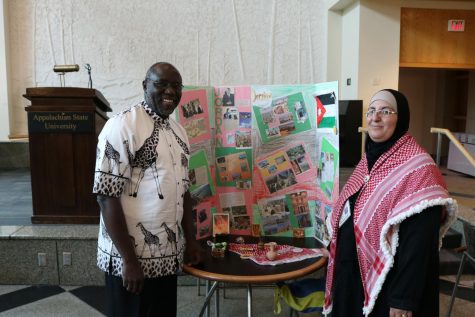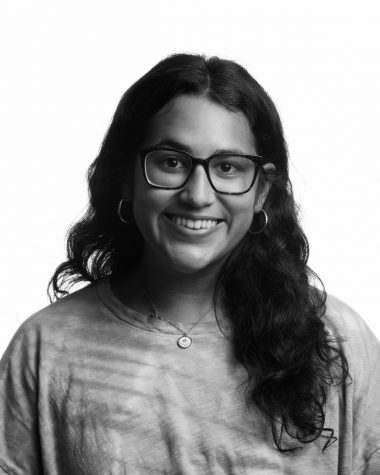Fulbright TEA participants bring international education to App State
October 3, 2019
Some students look forward to studying abroad during their college career — China, England or somewhere else entirely. As it turns out, teachers look forward to traveling abroad, too, especially when the destination is Boone, North Carolina.
The Fulbright Teaching Excellence and Achievement Program allows international secondary school teachers to visit schools and universities in the United States for professional development. The program is part of the U.S. Department of State and is funded by the U.S. government, and administered by the nonprofit International Research and Exchanges Board, according to the program’s website.
“Being in Boone is like something out of my control of the world, I would say,” said Justo Hodgson, a TEA Fellow from Nicaragua. “There’s totally different people, they’re kind— say ‘good morning’ and ‘hello.’”
Hodgson is a Nicaraguan secondary education teacher who teaches English as a second language. He said in comparing the education systems in Nicaragua and the U.S., he has learned about 20 different cultures within the program.
“I’ve been learning not only on education, but learning about culture, and that’s the most important thing,” Hodgson said.
Hodgson believes he was placed in Boone for his first U.S. visit because he enjoys the mountains and hiking. He said App State’s campus has taught him about technologies and sustainability that he hopes to teach in his classrooms in Nicaragua.
App State is the only university in the UNC School System to participate in the Fulbright TEA Program this semester. UNC-Wilmington participated in the program for the first time last semester.
“This program allows us to bring the world to our campus,” said Maria Anastasiou, executive director of the Office of International Education and Development.

Anastasiou said while App State has participated in the program for nine years, this is the first year 20 TEA Fellows are coming from 20 different countries.
“The exchange of ideas that we have with these people is really powerful,” Anastasiou said. “On our campus we have made a decision that global learning is important.”
One of these specific exchanges involves the Appalachian Community of Education Scholars of the Reich College of Education. Students like Berenice Blanco-Rodriguiez, who is in the ACES program, worked one-on-one with a TEA Fellow to focus on diversity in the classroom and different teaching styles.
“It was definitely a different experience to share teaching styles with someone from a different country,” Blanco-Rodriguiez, junior elementary education major, wrote in an email. “Through this experience, I realized how different cultures put more or less emphasis on certain material based on the careers they value as a society.”
Blanco-Rodriguiez said while she was inspired by her former teachers to become an educator, she noticed how they sometimes couldn’t relate based on their different backgrounds. Blanco-Rodriguiez said her experience with the TEA Fellows is one way to help her future students not experience a disconnect.
“I want to provide my students with the support and love my teachers did for me while changing the narrative and helping contribute to the growing diverse environment of teachers,” Blanco-Rodriguiez wrote in an email.
Diego Hernandez-Guillen, junior Spanish education major, wrote that interacting with teachers from countries such as Nicaragua, Tunisia, Vietnam and Sri Lanka inspires him to do the same in his future classroom.
“I want my students to be culturally aware of the world and surrounding environments,” Hernandez-Guillen wrote. “I want to be able to show my students aspects of different education systems and see how we can benefit from them.”
As for Hodgson, he said the value of comradery in the U.S. is one of the most important things he has experienced, and hopes to share it with his students and colleagues in Nicaragua.
“One important thing to take back is all the love, the friendship that I have with my fellows,” Hodgson said.
Correction: A previous version of this article incorrectly stated that East Carolina University hosted the TEA program last semester. The University of North Carolina at Wilmington hosted the program last semester.










